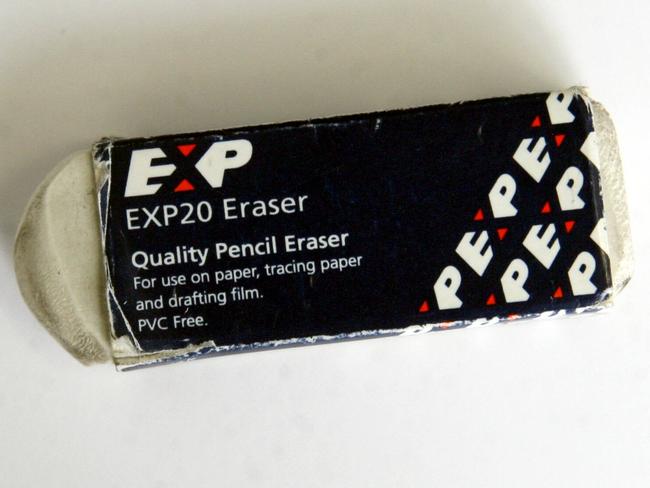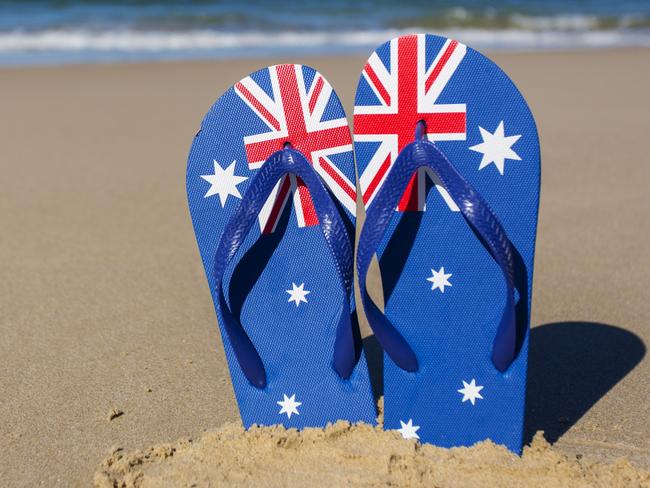Words and terms that have a totally different meaning in other English-speaking countries
NO ONE wants be that embarrassing tourist everyone laughs at. But using these words will probably guarantee just that.

THERE are few greater embarrassments than being exposed as a stupid tourist in another country.
It’s often the simple things that will get you, such as standing on the wrong side of the escalator on the London Underground, or saying “sorry” when bumping into someone in Germany.
And then there is the problem of using a seemingly innocent word or phrase, which takes on a new and very unintended meaning in another cultural context — even in another English-speaking country.
Here are a few simple words from home that could turn you into an instant laughing stock in countries where people also speak English — if a slightly different version of it.

PANTS
Can’t go wrong with pants, eh? Sure you can. In the UK and Ireland, people use the word “pants” to describe underwear. What we call pants — jeans, etc — they call trousers.
It’s not the most embarrassing mistake to make but if people are giving you a weird look while you discuss your pants — if that is indeed the kind of thing you do on holiday — you now know why.
RUBBER
Every Australian knows a rubber is a small stationery item used to correct pencil mistakes, and is more formally known as an eraser.
But in the United States, the word “rubber” is a euphemism for condom. So tread carefully if you need to use an eraser over there, or you will find yourself having to uncomfortably backtrack from what you actually just asked for.
GOLDEN GAYTIME
There’s not a lot that needs to be explained here. No one will know you are talking about ice-cream if you mention Golden Gaytimes outside Australia.
Australia is the only place Streets sells its legendary ice-cream — at least by that name. It’s sold in New Zealand, too, but over the ditch it’s sold under the much lamer name “Cookie Crumble”.

‘THE SH*TS’
You probably shouldn’t be using this phrase in polite society, but this very Aussie expression, used to describe one’s supreme dissatisfaction with a person, place or situation, won’t be easily understood by non-Australians.
Tell someone you’ve got the sh*ts, and they will think you’ve been struck with a nasty case of traveller’s diarrhoea. You have been warned.
GYPPED
You know what we mean — to be “gypped” means to be ripped off, robbed, scammed, cheated, swindled, and so on.
But you might not know this word has a racist history and should be avoided, especially in the UK and Europe.
It’s believed the word derives from “gypsy”, used to describe Europe’s nomadic Roma people. If you’ve just been ripped off, find another word to describe your unfortunate circumstance.
‘TAKING THE P*SS’
We’re a jovial bunch, us Australians, and frequently give our mates a hard time before revealing we’re only joking.
But we, along with our Commonwealth cousins, are the only people who take the phrase “taking the p*ss” to mean mucking around.
You can imagine what Americans are thinking when you tell them you are taking the p*ss. AVOID.

ENTREE
This one’s not our fault. We, like the rest of the world, know the term “entree” refers to a small dish served at the beginning of a meal. It’s French for “entrance”. It makes sense.
In the US, for some reason, the word is frequently used to describe the main meal.
Saying entree when you mean appetiser and getting a main is not the most mortifying thing to happen while travelling. But if you know how enormous American food portions are, you’ll want to spare the slight embarrassment of having barely touched the mountain of food they served you and paying for the lot.
THONGS
We’ve all probably learnt the hard way with this phrase. Mention your “thong” to an American and they will absolutely think you are talking about a tiny pair of string underwear, better known here as a G-string, among other unmentionable phrases.
And don’t even try using the phrase “double plugger” in the US. They will have only their imagination to guide them as they try to figure out what you just said.
In the US, thongs are called flip-flops. Also, in New Zealand, they’re sometimes called jandals.



